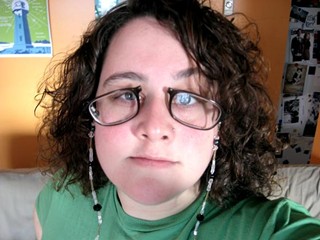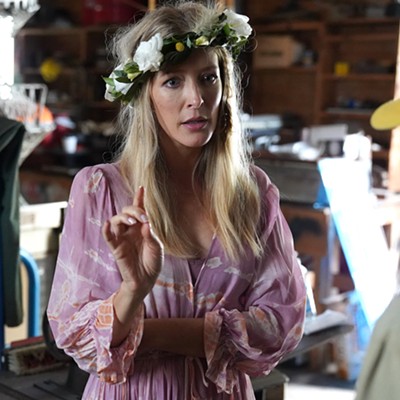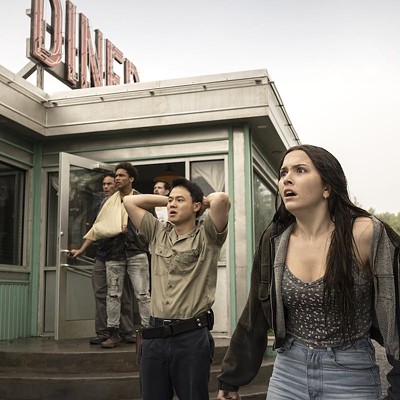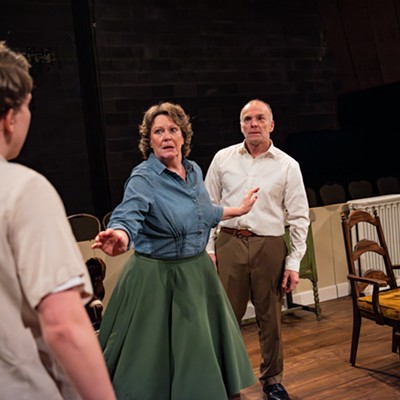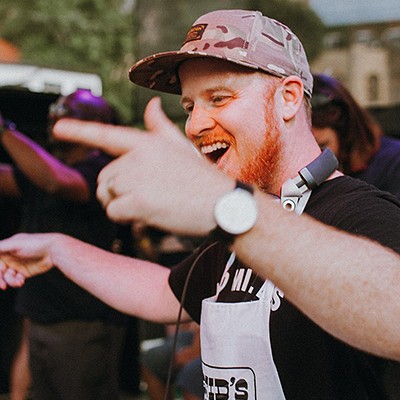I gained some weight.
I didnt say anything.
Those two lines are in the trailer for a reason: Exchanged in a blazing Arizona parking lot by Philip Seymour Hoffman and Laura Linney, they play as an easy joke in an admittedly hard-sell film. By now you already know theyre siblings. But this bit, like so many in Tamara Jenkins beautifully executed The Savages, conveys much with little. You also know that they havent seen each other in a while. You know hes sensitive and defensive. You know shes prone to attacking him and feels badly about it.
What you dont know yet is the source of this distance. The movie doesnt hand it to you, but it doesnt make you work for it, either. If you decided not to watch closely (justly Oscar-nominated Linney, and Hoffman give such natural, lived-in performances speaking Jenkins conversational, modestly understated dialogue), it could be easy enough to miss all the clues and meaning flying around: The Savages would exist as a moderately entertaining, kind of sour drama.
But if you were to dig hard into this story of mid-life siblings who have to put their father into a nursing home, if you really listen to whats behind the casual banter and mini-spats, if you put yourself into Jon and Wendy Savages defeated shrugs of routine and the lies they tell each other to keep themselves going, at the happyish end youd find a film that has earned every one of its laughs, cries and truths authentically---without any of the mawkishness that almost always sinks movies about the elderly. (Or the earnestness that almost always undercuts films bred at Sundance, like this one.)
Both Jon and Wendy are flawed, though hers are more obvious since shes a bit nuts. She lies about receiving prestigious playwriting grants, sleeps with a married guy and takes money from FEMA for being traumatized by September 11. (He, for his part, cant bring himself to marry his Polish girlfriend so he just waits for her visa to run out.) But the film never stoops to pit them against each other---theres no reason since each feels equally conflicted, yet responsible, for helping a father who did a shit job raising them. Nor does it paint them in shades of good and bad. Theyve got problems. Theyve got lives. But theyve got to put it all aside right now. Whos smarter or more talented has no bearing on this situation, yet the pure nature of it, of confronting mortality and the past, constantly brings up old hurts and rivalries but Linney and Hoffmans performances are so well developed that there is never a danger of their characters descending into cartoonish depictions.
This is the best kind of movie, the kind that reflects life back to us in its ugly, gray, diminished anti-splendour. Its filled with actors you couldve cast straight out of your own life, who talk the way people do minus perfectly tweaked monologues and constantly repeated exposition. (Theres no confrontation with the father, or specific explanation as to why he is considered a bad one.)
The Savages theme and location dont allow for much opportunity for visual dazzle, but Jenkins (The Slums of Beverly Hills) goes for it whenever she can, as in the colour- saturated choreographed dance performed by the residents of Sun City, Arizona, in the opening sequence---a stark contrast to the bulk of the movies sterilized nursing-home set-pieces and surrounding early-winter Buffalo exteriors. (A masterfully framed tennis game between Jon and Wendy coincidentally calls to mind The Squid and the Whale, another talky, sharply wrought film about family. It co-stars Linney---also, curiously, as a burgeoning writer---and features an angry match between Linney and soon-to-be-ex-husband Jeff Daniels.) A scene where Wendy decorates her fathers depressing room with accessories from Target---a lava lamp, a red pillow---is perhaps unconsciously symbolic of Jenkins the director making her best effort to beautify a picture that doesnt really allow for it.
What it lacks in hard aesthetics, The Savages makes up for in exquisite human moments, the kind Judd Apatow gets credit for but that dont actually exist in his films--- rough at the edges, all soft heart in the centre, delivered with a voice of authority and grace.


